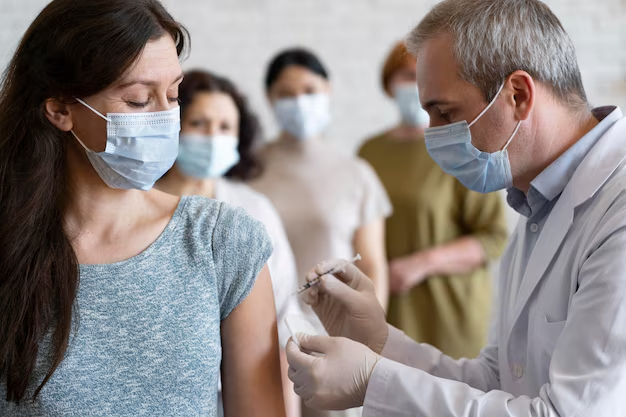Navigating Shingles Immunization: What You Need to Know
In an age where preventive healthcare is more crucial than ever, understanding the nuances of shingles immunization is vital. Shingles, a painful rash caused by the varicella-zoster virus—the same virus responsible for chickenpox—can surface at any time, particularly in older adults. With the potential for debilitating pain and complications, immunization becomes a key player in prevention. So, how often should you get a shingles vaccine? Let's break it down, offering insights into its necessity, timing, and broader context.
Understanding Shingles and Its Impact
Before diving into the specifics of immunization, it's essential to grasp the significance of shingles. Anyone who has had chickenpox is at risk because the virus can lie dormant in nerve tissues, reactivating years later as shingles.
Why Shingles is a Concern
- Painful Symptoms: Shingles often begins with tingling or discomfort on one side of the body, followed by a painful rash.
- Complications: While the rash itself lasts a few weeks, some suffer long-term pain known as postherpetic neuralgia (PHN).
- Risk Populations: Individuals over 50, those with weakened immune systems, and chronic disease patients are at increased risk.
Takeaway: Recognizing symptoms and understanding risks can aid in seeking timely medical advice, reducing complications.
The Role of Shingles Vaccination
Vaccination plays a pivotal role in preventing shingles and its complications. The primary vaccine used today is Shingrix, preferred for its effectiveness and safety.
Shingrix Vaccine: A Closer Look
- How It Works: Shingrix is a non-live, recombinant subunit vaccine. It's designed to boost immunity against the varicella-zoster virus.
- Efficacy: Clinical trials have shown it to be over 90% effective in adults 50 years and older.
- Administration: The vaccine is given in two doses, spaced 2 to 6 months apart.
Key Insight: Shingrix's two-dose regimen helps maximize protective benefits, making it a crucial preventative tool for eligible adults.
How Often Should You Get the Shingles Vaccine?
Now, onto the core question: frequency. Current guidelines provide clarity on when and how often individuals should be vaccinated.
Who Needs It and When?
- Adults Over 50: The CDC recommends Shingrix for all adults aged 50 years and older, regardless of past shingles or chickenpox infections.
- High-Risk Individuals: Those with compromised immune systems or chronic health conditions should consult their healthcare provider.
- Frequency: After the initial two-dose series, a booster isn't currently recommended as Shingrix is believed to provide long-term protection, though research is ongoing for updates.
Practical Tip: Regularly consult with healthcare professionals to stay updated on potential changes in vaccine guidelines.
Beyond Frequency: Misconceptions and Facts
It's easy for misinformation to circulate. Here’s what you should know to debunk myths and clear confusion.
Common Misconceptions
- "I Don’t Need It If I've Had Shingles": Experiencing shingles once doesn't guarantee immunity. Vaccination can prevent future occurrences.
- "Chickenpox Immunity Means I’m Safe": The chickenpox vaccination doesn’t protect against shingles. Shingrix remains essential.
- "Young and Healthy Means No Risk": While shingles predominately affects older adults, anyone who had chickenpox is susceptible.
Fact Check: Recognize myths and inform others accordingly to foster better community health decisions.
Navigating Side Effects and Concerns
No medical treatment is without possible side effects. Understanding these can help manage expectations and prepare for action, if necessary.
Common Reactions to Shingrix
- Mild Effects: Pain or swelling at the injection site, fatigue, muscle pain, headache, shivering, fever, and stomach pain are common.
- Duration: These effects are typically short-lived, resolving in 2-3 days.
- Severe Reactions: While rare, allergic reactions or severe side effects should prompt immediate medical attention.
Health Tip: Prepare for and manage mild side effects with over-the-counter pain relievers and rest.
Bridging the Gap: Immunization and Lifestyle
While vaccination is a cornerstone, leading a lifestyle conducive to robust immune health further strengthens defenses against shingles.
Supporting Your Health Naturally
- Balanced Diet: Consume nutrients that support immune function, like vitamin C-rich fruits and leafy greens.
- Regular Exercise: Physical activity bolsters immune health and reduces stress, a known shingles trigger.
- Quality Sleep: Ensure consistent, restorative sleep to maintain a strong immune system.
Lifestyle Advice: Integrate wellness practices to fortify immunity, complementing vaccination efforts.
A Broader Perspective on Preventative Care
Vaccination against shingles is part of a larger puzzle in maintaining health, particularly as we age.
Coordinated Health Strategy
- Annual Health Checks: Regular check-ups allow early detection and management of health issues.
- Stay Updated: Be informed about vaccines, not just for shingles but for other conditions like flu or pneumonia.
- Engagement: Actively participate in healthcare decisions to foster better outcomes.
Reminder: Take charge of your health by prioritizing prevention and awareness in every aspect of care.
Final Takeaway: Empowerment Through Knowledge
Understanding the intricacies of shingles immunization isn't just about preventing a rash. It's about safeguarding your overall health landscape. By comprehending who should get vaccinated, when, and why, you're equipped to make informed choices that prioritize well-being. Remember, proactive engagement in healthcare—coupled with lifestyle adjustments—can make a significant difference in aging with vitality and resilience.
Summary of Key Insights
- 📅 Shingrix Timing: Recommended for adults 50+, with two doses 2-6 months apart.
- 🤔 Important Consideration: Even if you've had shingles or chickenpox, vaccination is crucial.
- 🌟 Manage Side Effects: Prepare for mild reactions; seek help for severe symptoms.
- 🏋️ Healthy Living: Pair immunization with a balanced diet, exercise, and good sleep.
- 🔍 Stay Informed: Engage with healthcare providers and stay updated on preventive care.

